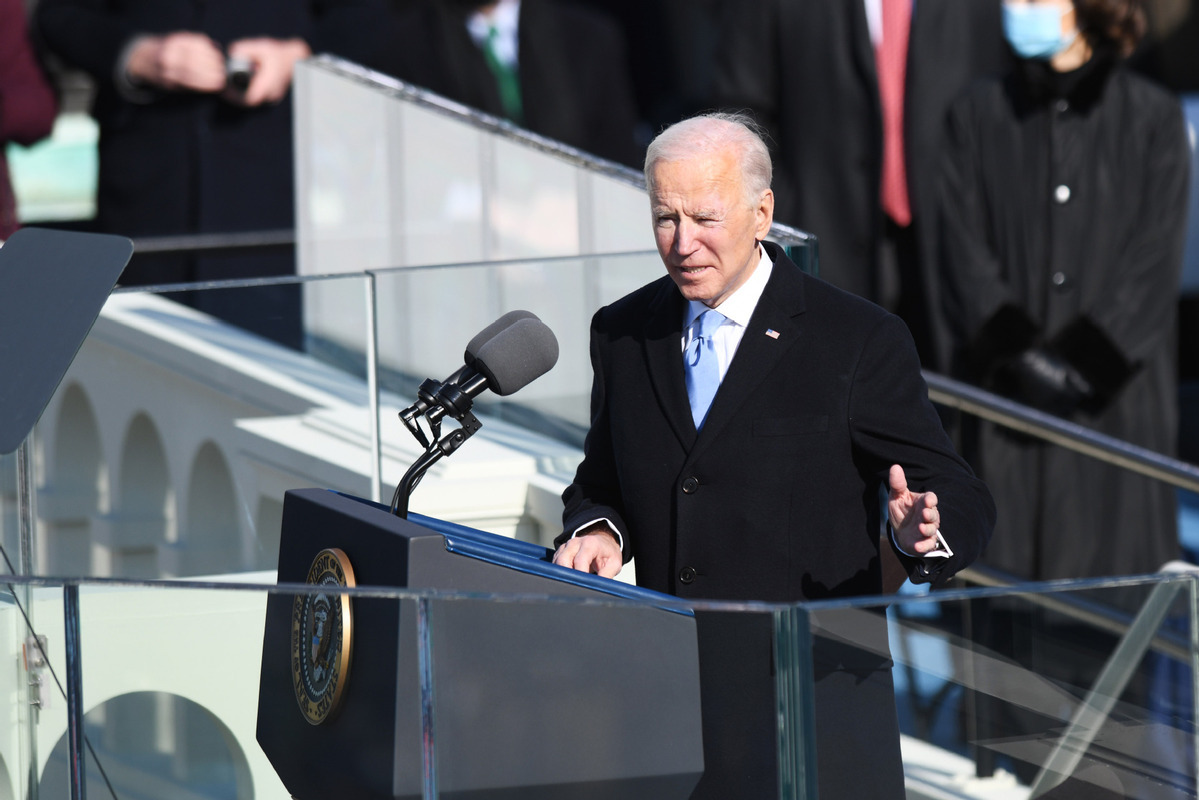
US President Joe Biden delivers his speech after being sworn-in as the 46th President of the United States during his inauguration on the West Front of the US Capitol in Washington, US, Jan 20, 2021. [Photo/Xinhua]
Both houses of Russia's Parliament ratified the New START nuclear arms control treaty with the United States on Wednesday one day after the two countries agreed in principle to extend the treaty by five years during a phone call between US President Joe Biden and Russian President Vladimir Putin.
Given that the extension does not need approval from lawmakers in the US, the timely efforts from the two sides have literally breathed new life into the last nuclear arms control treaty between the world's two biggest nuclear powers before it was due to expire on Feb 5. This will, in turn, inject confidence in the international nuclear disarmament regime.
Though details of the extension still need to be worked out, the new US government under Biden has won credit for its willingness to swiftly bring the US back to international treaties, in marked contrast to the previous US administration under Donald Trump, which had turned its back on a variety of key international agreements.
Prior to extending the New START treaty, Biden signed executive orders on his first day in office reinstating the US as a party to the Paris Agreement on climate change and rejoining the World Health Organization. He has also said the US will return to the 2015 Iranian nuclear deal.
On Wednesday, the Biden administration made a fresh Middle East policy gesture by announcing reviews of the massive arms packages to the United Arab Emirates and Saudi Arabia that were initiated by the previous administration, which can be interpreted as being consistent with its intention to ease tensions with Iran.
As Iran and Saudi Arabia, long-time rivals, have been engaged in a proxy war in Yemen in recent years, the review can be seen as Biden's bid to disentangle the US from the Trump-era Middle East strategy, which was characterized by heightened tensions with Iran through schemes including supporting regional allies to confront Iran on various fronts.
Biden may simply be hoping to repair the international image of the US and its relations with its allies through these moves. But the world hopes that they represent more than that. That under his administration the US will rejoin the world community and shore up multilateralism after Trump's unilateralist actions created chaos in international relations and undermined international efforts to tackle the COVID-19 pandemic and other global challenges.
However, whatever the motive, due to the deep-rooted distrust and enmity between the US and both Russia and Iran, it is too early to say that the new US administration will substantially improve its ties with them any time soon.
Not to mention that much more still needs to be done for the US to truly return to multilateralism, such as recommitting it to other important international agreements, including the Intermediate-Range Nuclear Forces Treaty and the Open Skies Treaty.


